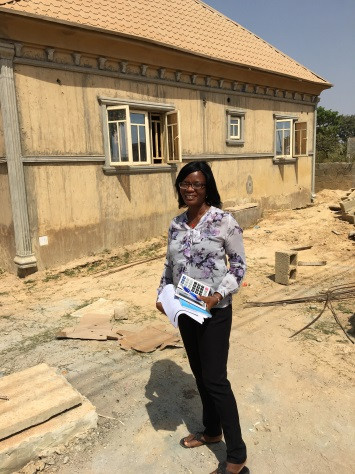
With a population of 190 million people, the largest in Africa, and the second largest economy on the continent, it is reported that in Nigeria 80% of the population lives in informal settlements with poor conditions.
Nigeria's housing demand is expanding rapidly and is largely informal, with the formal sector making up approximately 15% of the housing market. Where housing supply exists, it targets high-income earners, while houses categorized as low income are mainly outside the reach of low-income earners. As a result, rents and house prices are high resulting in a seller’s market where landlords demand rents be paid on average two years in advance.
In a coordinated response to a critical lack of housing in Nigeria, the Central Bank of Nigeria (CBN) received financing from the World Bank to facilitate access to capital for the unserved and underserved through a pilot program of housing micro finance. The consortium of AFC and ADG has been implementing Component 3 of the project, which aims at enhancing the internal capacities of selected microfinance institutions (MFIs) to increase access to housing finance in the central and northern part of the country. For the past eight months, the project team has been actively supporting four partner microfinance banks in Abuja, Kaduna and Enugu as part of a pilot under the supervision of the Central Bank of Nigeria.
In the course of the project three key experts analysed the partner MFI’s internal capacities to provide micro-loans for home repair, improvement or incremental building. Capacity building measures included:
- the analysis of the housing portfolio;
- review of the microfinance bank’s MIS system and its readiness to process housing loans;
- credit appraisal processes and credit monitoring by loan officers on and off-site;
- recommendations on product development;
- process and policy manuals on Construction Loans;
- marketing strategies;
- as well as classroom trainings and direct coaching of bank’s staff on risk management.
These combined efforts resulted in the payment of a first tranche of the credit line by the CBN to the partner MFIs of 460m NGN targeted to benefit low-cost housing.
The project team will further give recommendations to the CBN on a potential roll-out of the World Bank project on housing finance. Particularly for the Nigerian market the needs and expectations are high that the financial sector will further enhance its efforts to tackle the critical housing situation in Nigeria for a growing population.
For further information please contact: Mareike.decker [at] afci.de
